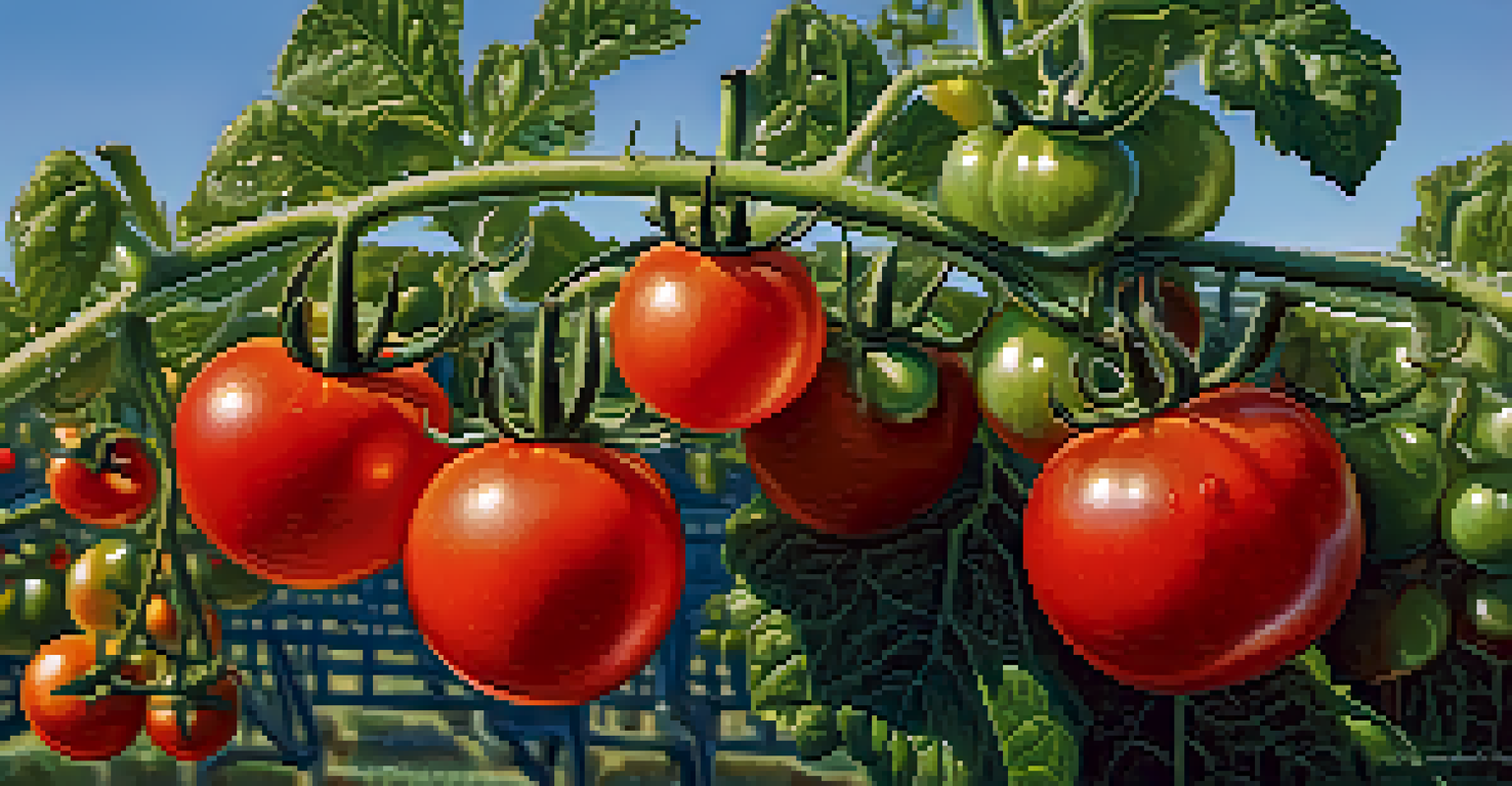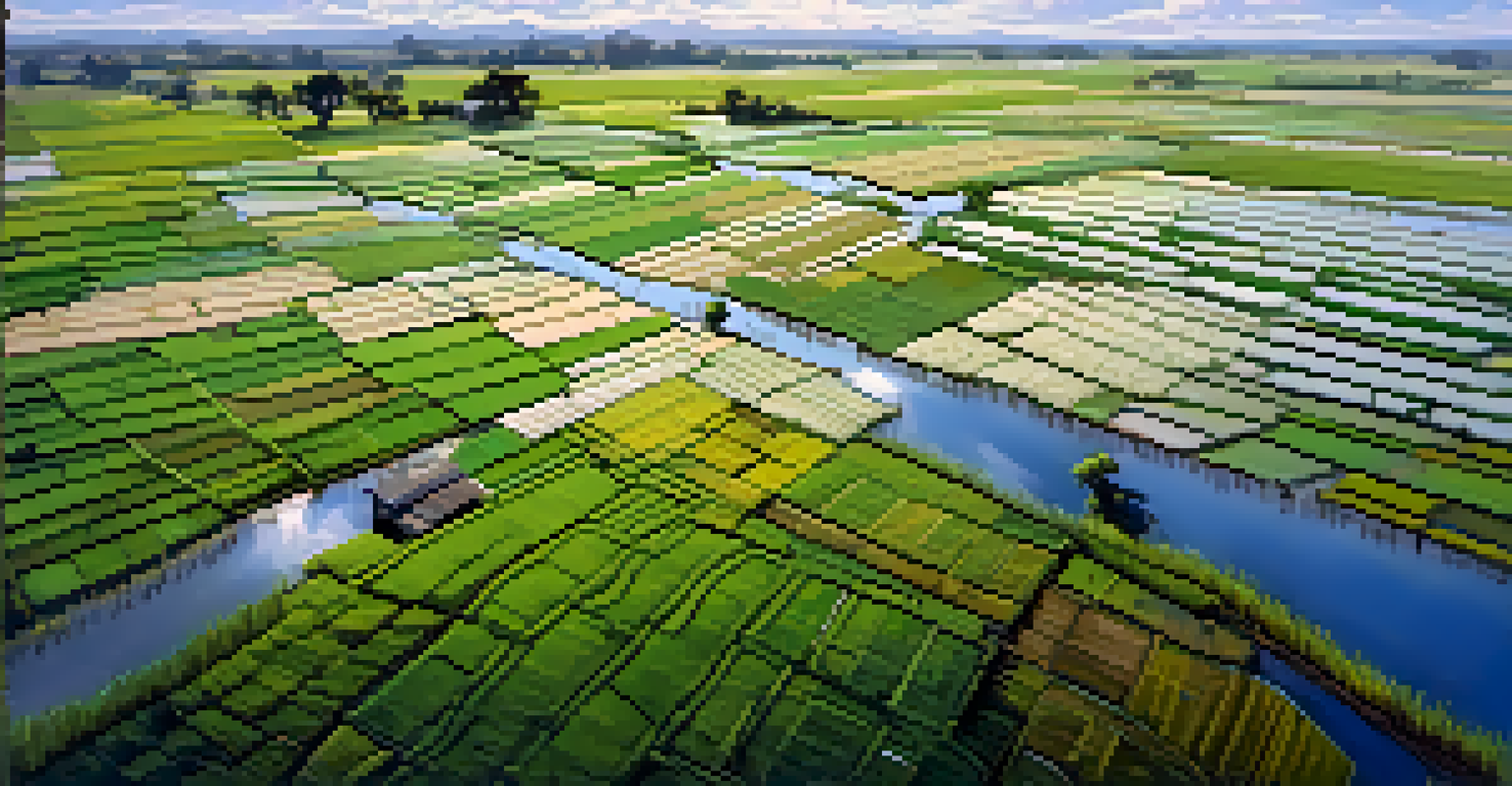Key Crops Grown in Sacramento and Their Economic Importance

Introduction to Sacramento's Agricultural Landscape
Sacramento is often dubbed the 'Farm-to-Fork Capital of America,' and for good reason. Its fertile soil and favorable climate make it an agricultural powerhouse, producing a variety of key crops. From fruits and nuts to vegetables and grains, the region's diverse agriculture contributes significantly to both local and national economies.
Agriculture is our wisest pursuit, because it will in the end contribute most to real wealth, good morals, and happiness.
The Sacramento Valley's unique geography, with its rivers and rich alluvial plains, supports a thriving farming community. This not only sustains local livelihoods but also serves as a foundational element of California's agricultural identity. Understanding this landscape is essential for appreciating the economic importance of the crops grown here.
In the following sections, we will delve into the major crops cultivated in the Sacramento area and explore how they impact the economy, the environment, and the community.
Almonds: A Nutty Economic Powerhouse
Almonds are one of the most significant crops grown in Sacramento, contributing billions to the economy. California produces over 80% of the world's almonds, with Sacramento being a key player in this industry. The demand for almonds has skyrocketed globally due to their health benefits and versatility in various products.

The almond industry not only provides jobs for thousands of people in the region but also supports related sectors such as packaging and transportation. This interconnectedness highlights how one crop can have a ripple effect throughout the economy. Additionally, almond orchards contribute to the local landscape, enhancing the beauty of the region.
Sacramento's Diverse Crops Drive Economy
The variety of crops cultivated in Sacramento, such as almonds, rice, and tomatoes, significantly contribute to the local and national economy.
However, almond farming also faces challenges, particularly concerning water usage. As water resources become more strained, farmers are exploring sustainable practices to ensure the industry remains viable.
Rice: A Staple Crop with Global Reach
Rice is another vital crop in Sacramento, particularly medium-grain varieties like Calrose. The region’s climate and soil conditions are ideal for rice cultivation, making it a staple food not just locally but internationally. Sacramento County is one of the leading rice-producing areas in the United States.
The farmer has to be an optimist or he wouldn’t still be a farmer.
The economic impact of rice farming extends beyond the fields. It supports local businesses, from seed suppliers to processors and distributors. Furthermore, rice paddies provide unique ecosystems that support local wildlife, showcasing the environmental importance of this crop.
With increasing global demand for rice, Sacramento's farmers are continually adapting their practices to meet consumer needs while also addressing environmental concerns.
Tomatoes: The Heart of the Processing Industry
Tomatoes are a key crop for Sacramento, especially for processing into sauces, pastes, and canned goods. The region’s warm summers provide the perfect growing conditions for this beloved fruit. In fact, California produces about 95% of the processed tomatoes in the United States, with Sacramento playing a central role.
The processing tomato industry not only provides jobs but also drives economic growth in the area. Local farmers work closely with processors to ensure quality and efficiency, creating a strong partnership that benefits both parties. This collaboration is vital for maintaining competitive pricing and meeting market demands.
Sustainable Practices Address Challenges
Farmers in Sacramento are adopting innovative and sustainable farming practices to tackle environmental challenges like water scarcity and climate change.
Moreover, the cultivation of tomatoes contributes to crop rotation practices, enhancing soil health and sustainability, which is crucial for the long-term viability of agriculture in the region.
Grapes: From Vineyards to Wine Country
The vineyards in and around Sacramento are famous for producing high-quality grapes, which are essential for winemaking. The region's climate is conducive to growing a variety of grape types, making it a significant player in California's wine industry. Wine production not only boosts the local economy but also attracts tourism, contributing to the area’s cultural richness.
Beyond the economic benefits, grape cultivation plays a role in preserving the landscape and promoting local biodiversity. Many vineyards implement sustainable practices, ensuring that the environment is protected while still producing a sought-after product. This balance is increasingly important in today's climate-conscious market.
As wine continues to gain popularity, the Sacramento grape industry is poised for growth, further solidifying its economic importance in the region.
Walnuts: Growing Demand and Economic Impact
Walnuts are another crucial crop grown in Sacramento, benefiting from the region's suitable climate. With health-conscious consumers seeking nutritious options, the demand for walnuts has surged. This crop not only provides a source of income for farmers but also positions Sacramento as a key player in the global nut market.
The walnut industry creates numerous jobs in farming, processing, and distribution, contributing significantly to the local economy. Additionally, walnut orchards have a lower water footprint compared to some other crops, making them a more sustainable option in the face of water scarcity.
Agriculture's Cultural and Economic Role
The agricultural landscape of Sacramento not only supports livelihoods but also enhances community identity and attracts tourism through its rich farming heritage.
As market trends shift towards healthier eating habits, walnut production is expected to grow, further enhancing its economic significance in Sacramento.
Environmental Challenges: Balancing Farming and Sustainability
While Sacramento's agriculture is thriving, it faces pressing environmental challenges. Water scarcity, climate change, and soil degradation are issues that farmers must navigate to maintain productivity. These challenges require innovative solutions and sustainable practices to ensure the longevity of agriculture in the region.
Farmers are increasingly adopting water-efficient irrigation techniques and crop rotation strategies to protect soil health. By prioritizing sustainability, they can not only preserve their livelihoods but also contribute positively to the environment. This shift reflects a growing awareness of the interconnectedness of farming, ecology, and the economy.

Addressing these challenges is vital for securing the future of Sacramento's agriculture, ensuring that it continues to thrive for generations to come.
Conclusion: The Future of Sacramento's Agricultural Economy
The key crops grown in Sacramento are more than just food; they are the backbone of the local economy. From almonds to tomatoes, each crop plays a unique role in sustaining livelihoods and contributing to the community. As these industries continue to evolve, they must adapt to changing consumer preferences and environmental challenges.
By embracing sustainable practices and fostering innovation, Sacramento can ensure its agricultural sector remains resilient and productive. The future of farming in the region looks promising, with opportunities for growth and development.
Ultimately, the economic importance of Sacramento's crops extends far beyond the fields, impacting lives, local businesses, and the environment, making it crucial to support and nurture this vibrant agricultural landscape.